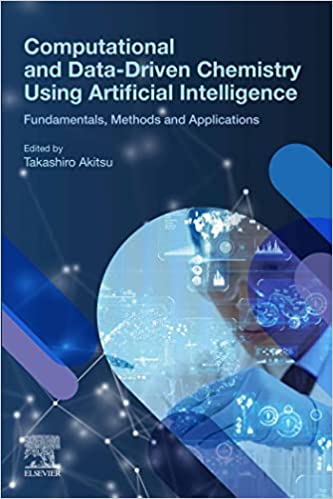

Most ebook files are in PDF format, so you can easily read them using various software such as Foxit Reader or directly on the Google Chrome browser.
Some ebook files are released by publishers in other formats such as .awz, .mobi, .epub, .fb2, etc. You may need to install specific software to read these formats on mobile/PC, such as Calibre.
Please read the tutorial at this link: https://ebookbell.com/faq
We offer FREE conversion to the popular formats you request; however, this may take some time. Therefore, right after payment, please email us, and we will try to provide the service as quickly as possible.
For some exceptional file formats or broken links (if any), please refrain from opening any disputes. Instead, email us first, and we will try to assist within a maximum of 6 hours.
EbookBell Team

4.4
42 reviewsComputational and Data-Driven Chemistry Using Artificial Intelligence: Volume 1: Fundamentals, Methods and Applications highlights fundamental knowledge and current developments in the field, giving readers insight into how these tools can be harnessed to enhance their own work. Offering the ability to process large or complex data-sets, compare molecular characteristics and behaviors, and help researchers design or identify new structures, Artificial Intelligence (AI) holds huge potential to revolutionize the future of chemistry. Volume 1 explores the fundamental knowledge and current methods being used to apply AI across a whole host of chemistry applications.
Drawing on the knowledge of its expert team of global contributors, the book offers fascinating insight into this rapidly developing field and serves as a great resource for all those interested in exploring the opportunities afforded by the intersection of chemistry and AI in their own work. Part 1 provides foundational information on AI in chemistry, with an introduction to the field and guidance on database usage and statistical analysis to help support newcomers to the field. Part 2 then goes on to discuss approaches currently used to address problems in broad areas such as computational and theoretical chemistry; materials, synthetic and medicinal chemistry; crystallography, analytical chemistry, and spectroscopy. Finally, potential future trends in the field are discussed.